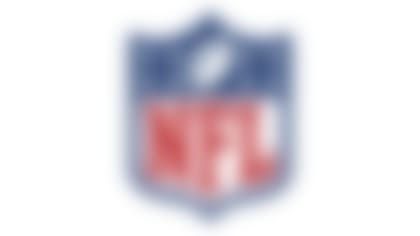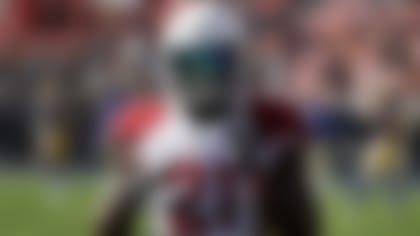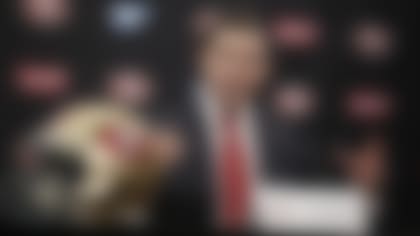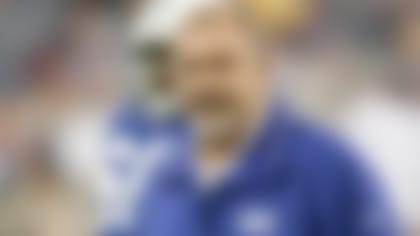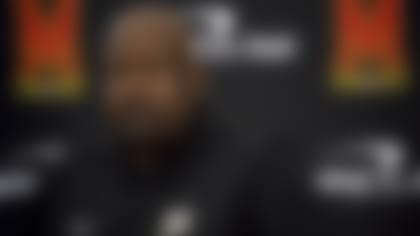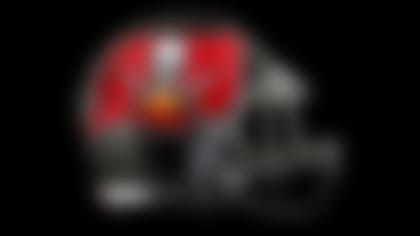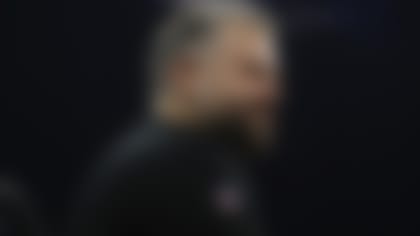The NFL and NFL Players Association's negotiation on human growth hormone testing, which seemed destined for completion for the bulk of the summer, has hit a stalemate.
The final remaining issue is NFL Commissioner Roger Goodell's power over the appeals process. In particular, the league is looking to maintain Goodell's jurisdiction over cases involving the law and evidentiary cases. The former could include information arising from arrests or grand jury testimony, and the latter involves cases such as baseball's Biogenesis affair.
"I'm telling you, we've put together an agreement that has satisfied every concern the union has," Adolpho Birch, NFL senior vice president of law and labor policy, said in a telephone interview from his New York office. "And we've done it by agreeing to ways we don't always agree to be the most appropriate. But there are things we can agree to live with, and to advance the ball and get testing, we're going forward with. We've done everything we can, within limits, and those limits include further reductions to the commissioner's authority."
The trouble with the divisive element in the negotiations -- the commissioner's power -- is that it's black and white. And as such, there's little room for compromise. Either Goodell has control of the appeals on the legal and evidentiary cases, or he doesn't.
"For players, it is (a deal-breaker)," said George Atallah, the NFLPA's assistant executive director of external affairs. "Neutral arbitration has to be a cornerstone of this policy, given that our membership believes it is essential to moving forward. (NFLPA player reps) have now reviewed and voted on all aspects of the policy twice. And in every instance, neutral arbitration for all elements of the performance-enhancing drug policy was critical to them."
Atallah conceded that Goodell's handling of the New Orleans Saints bounty case is "a factor" in the players' thinking, but he said "there are other factors about the integrity of a fair due process that are equally important."
Birch said the league has made concessions in agreeing to a population study and third-party arbitration over simple positive tests, and banning game day blood testing.
A union source, in turn, accused the league of delaying the population study by insisting on an overall agreement before starting the collection process. The source added that the players "never agreed" to yield any appeal power to Goodell and that the issue isn't about protecting rule-breakers -- it's only to protect the players' rights to have discipline reviewed.
As the current agreement is structured, the league would collect specimens in the preseason for the population study, which then would set the threshold for positive tests. Positive samples from that collection would not lead to suspensions, but the league and union agreed, per Birch, to start collecting samples during Week 1 that could lead to suspensions, under the agreed-upon policy. Those suspensions would be levied after the threshold was set.
Birch views next Saturday, the day that NFL teams execute their final roster cutdowns, as a soft deadline for an agreement on HGH testing.
"The agreement we have now says we will get specimens from all players during the preseason," Birch said. "We have nine days left in preseason. Because I presume it was important to put that in as a period of time to do it within, it's a self-limiting provision. So as it stands, we have nine days. And it's actually less than that, because logistically, we'd have to start sooner to get it done by then."
Atallah said it's his understanding that it'd take one to two days to organize the blood draw, then three to five days to complete it, meaning the league and union likely would have to reach an agreement by early next week to have a realistic shot at executing the current plan.
The union sent a message to players Friday stating: "In our efforts to improve the integrity of our collectively bargained joint drug policies, please remember that collection protocol rules, including validation of a player's identification at the time of collection, will be strictly enforced."
The NFL previously has emphasized that it would want a comprehensive agreement on the overall drug policy before starting the population study, but Birch said the league has softened its stance there, saying only an agreement on the PED portion of the policy was necessary to start the collection process. The union has said it would be fine starting the population study immediately, absent a full agreement, to streamline the process.
"It's bizarre that players are the ones who have signed off to have their blood drawn before the league has," Atallah said. "It's not speculation. The NFL has publicly stated that they are not prepared to proceed before we submitted to an exception on neutral arbitration under the policy. They sent the memo, Adolpho said it today, this is no longer about HGH testing. This is about the league's control and power."
The NFL has said that Congress could get involved if this round of talks fails, and Rep. Elijah Cummings of Maryland hinted at that Thursday. Atallah responded to the league's suggestion of Congressional involvement by saying: "We have always been transparent with members of Congress that have been interested in the process. They know exactly where we stand."
The league and union traded shots earlier Thursday after NFLPA president Domonique Foxworth emailed USA Today requesting that the NFL drop its insistence on Goodell's role in the appeals process. Birch then released a statement that accused the union of having "buyer's remorse" and said: "It is time for the NFLPA to stop the delay tactics, to move forward for the good of the game and players, and stop focusing on protecting people that break the law."
Atallah responded on the union's website, with a PDF of a document signed by union executive director DeMaurice Smith but not Goodell. Atallah confirmed the document was part of the agreement on the population study, and his statement read: "The only case of buyer's remorse is the attached letter that the NFL agreed to weeks ago. Our signature is on it. Sign it, like you agreed to, and we start drawing blood from players immediately. Your refusal to sign it confirms that the only thing you care about is power."
The league and union still need to complete the rest of the drug policy, with sanctions for DUI offenses expected to be part of that. But for now, the issue of commissioner power stands in the way of the first steps to HGH testing.
"From the league's perspective, we're talking about an authority and responsibility that the commissioner has had for more than 50 years," Birch said. "It's at the core of the commissioner's responsibility -- he's the one protecting the integrity of the game, and he determines what impact those things have on the long-term best interests of football. That's why the commissioner is not willing to cede to someone that's not similarly invested in the good of the game."
Follow Albert Breer on Twitter @AlbertBreer.
